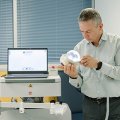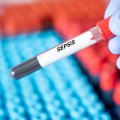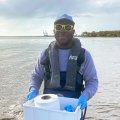Statement by UQ President and Vice-Chancellor Professor Peter Høj.
The Queensland Crime and Misconduct Commission (CMC) has advised the University of Queensland that it endorses the findings of an internal inquiry into suspected research misconduct.
The inquiry’s preliminary findings released two months ago prompted the retraction of a paper published in an academic journal.
UQ released a statement on 3 September 2013, advising it had asked the journal to retract the paper on the grounds that “no primary data can be located, and no evidence has been found that the study described in the article was conducted”.
Two former staff members from the UQ Centre for Neurogenic Communication Disorders Research were listed as authors on the paper.
The paper, titled Treatment of articulatory dysfunction in Parkinson's disease using repetitive transcranial magnetic stimulation, was published online in the European Journal of Neurology in October 2011.
UQ's internal investigation was conducted in line with the University’s Research Misconduct Policy and Procedures, and the Australian Code for the Responsible Conduct of Research.
UQ informed the Crime and Misconduct Commission (CMC) of the allegations in June, and was advised to proceed with internal investigations.
The final report of that investigation was provided to the CMC for consideration.
The CMC has advised UQ it agrees that the report’s findings can be supported “to the requisite standard”.
The final report confirmed the interim finding that no primary data could be located, and there was no evidence that the study described in the article had been conducted.
The paper’s authors have resigned from UQ, which means the University is not in a position to take disciplinary action in relation to the matter.
A systematic review of other papers involving the authors of the retracted paper is nearing completion.
The review of approximately 100 papers published since 2007 has so far found no further evidence of incorrect or non-existent data or of failure to obtain ethical approval.
The review has raised questions about the authorship of a small number of papers, and this is being examined further.
In relation to research integrity across the University, UQ has ongoing educational programs to inform researchers of the responsible conduct of research.
I am confident that the vast majority of our researchers take research ethics very seriously but, very rarely, there are likely to be people in any organisation who are prepared to act outside the accepted and expected boundaries.
University of Queensland researchers contribute to more than 6000 refereed journal articles each year.
It would in our view not be possible for any university to verify such large numbers of research papers prior to publication.
Peer-reviewed journals have processes to scrutinise papers submitted for publication.
By requesting the retraction of the paper, the University has informed the global scientific community that the research reported in the paper has no place in the body of scientific knowledge, and should not be used as a basis for further research.
UQ has returned a $20,000 grant from a non-government organisation, due to our concerns it had been allocated on the basis of information from the discredited paper.
Lions Medical Research Foundation fellowship funds awarded to one of the researchers involved in the retracted paper are being returned to the foundation.
Discussions with the Foundation began immediately after the UQ inquiry released its preliminary finding.
Media contact: Corporate Relations Manager Carolyn Varley, T: 3365 1120, M: 0413 601 248, c.varley@uq.edu.au.












